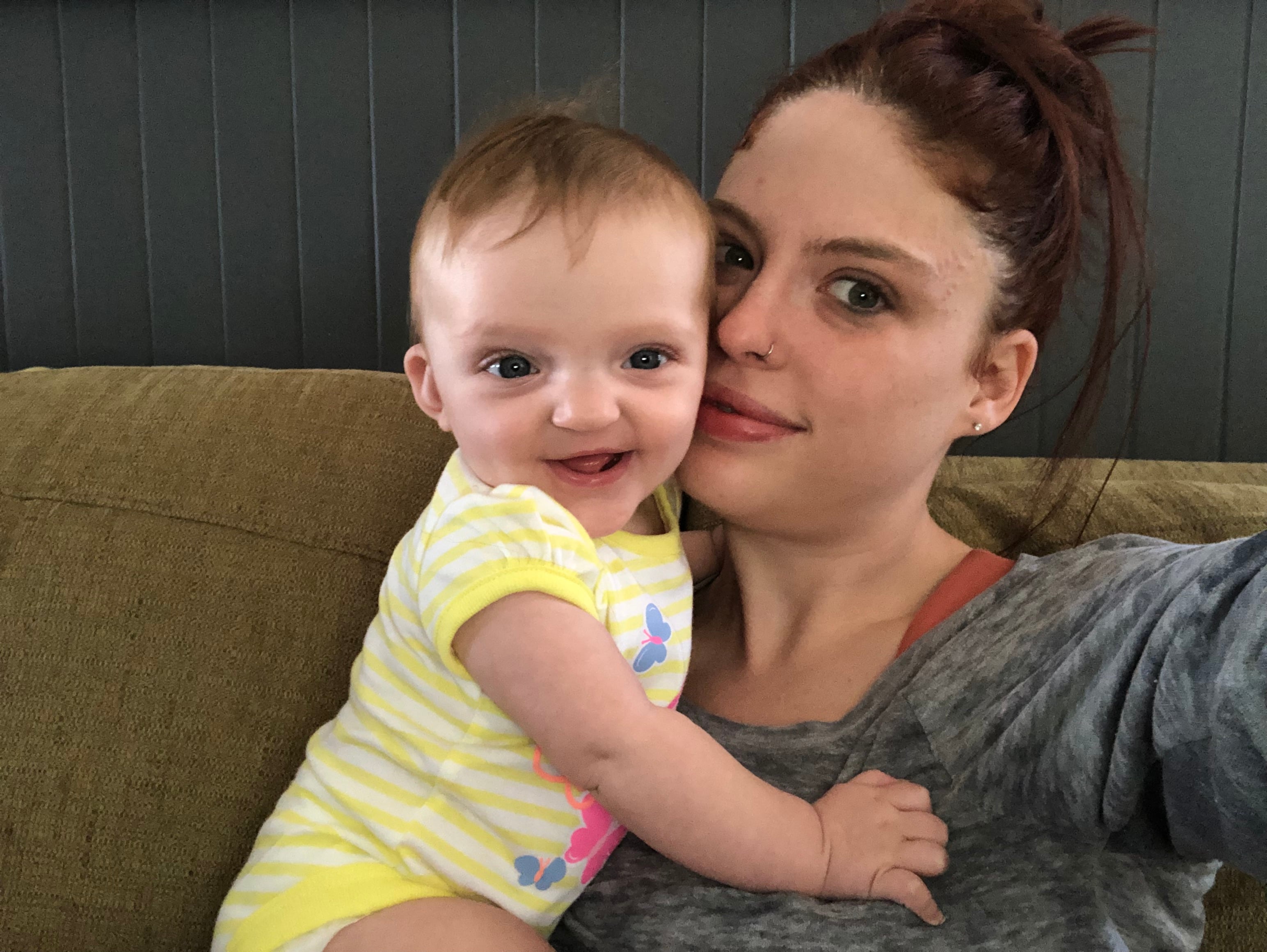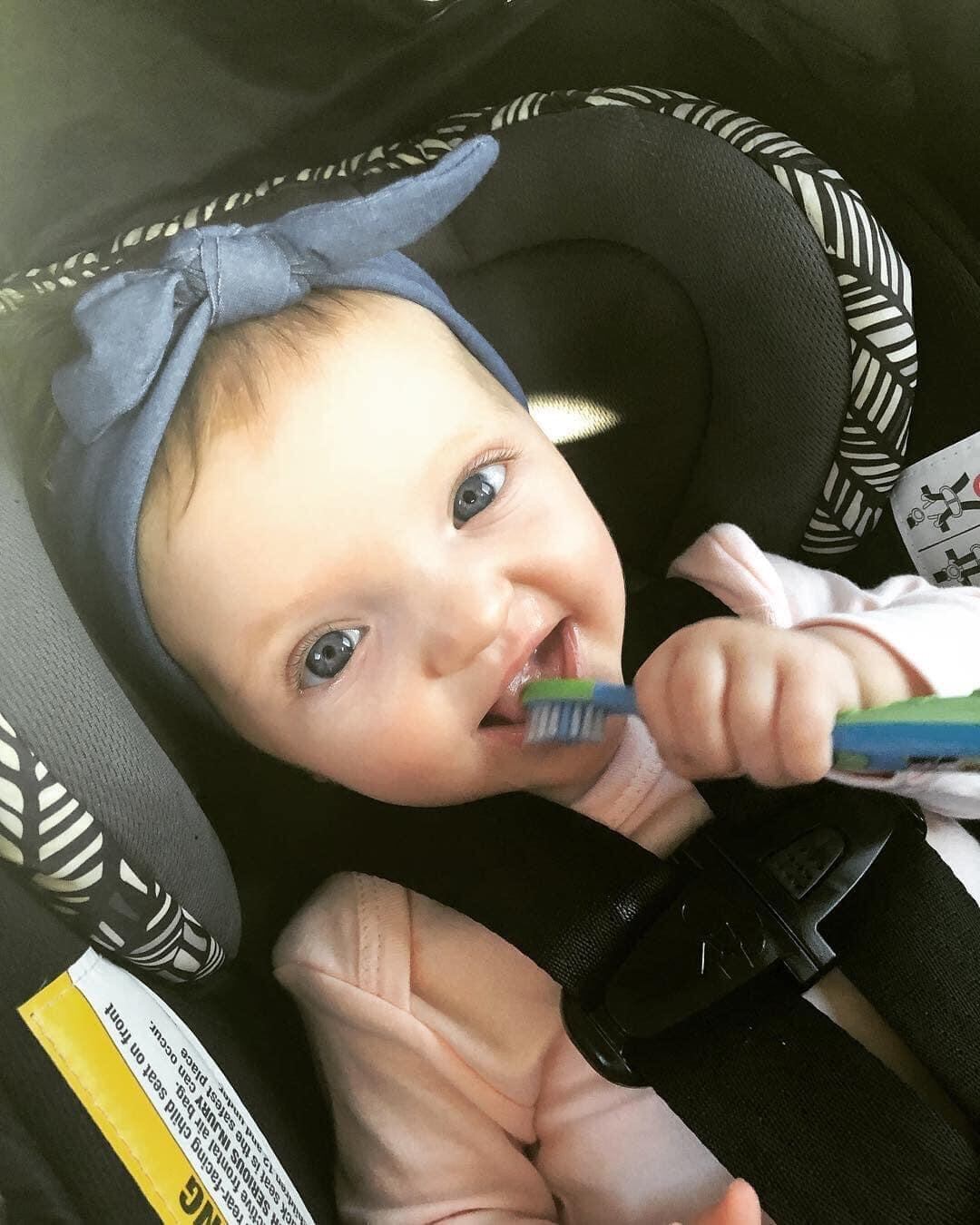The parents of a 7-month-old baby who died at a babysitter’s home in Hawaii military housing are suing the U.S. government and the privatized housing company, alleging they failed to take action that could have prevented the death of their daughter.
The government and Island Palm Communities failed in their duties to prevent the babysitter from operating her illegal child care business, and to use reasonable care to protect children “who were being exposed to unreasonable risks of harm, thus proximately causing the death” of Abigail Lobisch, the lawsuit alleges.
It was filed in federal court in Hawaii Aug. 26 on behalf of Abigail’s parents, Anna Lobisch and James Lobisch, a member of the Army National Guard, and Abigail’s 4-year-old brother. The attorneys ask for a jury trial, and asks for an unspecified amount of compensation for the “severe and devastating emotional distress” the Lobisch family has suffered because of Abigail’s death.
The inaction by the Army and Island Palm Communities allowed the illegal day care to expose numerous children to “dangerous conditions and neglect,” said the Lobisch’s attorneys from the firm Davis Levin Livingston, in a statement announcing the lawsuit. “The Lobisch family brings this lawsuit because they want to do what they can to ensure that another child will not be killed on base.”
Neither Army Garrison-Hawaii nor Lendlease immediately responded to a request for comment on the allegations. Island Palm Communities is a privatized housing partnership between Lendlease and the Army.
Military Times has reported on three deaths of military children in unauthorized child care in military housing between October, 2018 and November, 2019.
The babysitter, Navy spouse Dixie Denise Villa, is awaiting trial on charges of manslaughter in the civilian Hawaii court system. The death happened Feb. 24, 2019, in housing at the Army’s Aliamanu Military Reservation, where Villa was living with her husband Aaron Villa, a Navy chief petty officer.
According to the Honolulu medical examiner’s report, Abigail died from an overdose of the over-the-counter antihistamine diphenhydramine, the active ingredient in Benadryl and other similar medications. The investigation into the baby’s death has been handled solely by the Honolulu Police Department.
The lawsuit also reveals new allegations about Villa, that she had been accused at their previous duty station of operating an illegal child care, and was shut down by an officer in her husband’s chain of command. In 2015 a neighbor reported Villa’s unauthorized child care to family child care officials at Naval Air Station Whidbey Island, Washington, and to Aaron Villa’s chain of command. In 2015, an officer in Villa’s chain of command instructed him to “shut it down,” according to the lawsuit.
Then in 2017, when the Navy moved the Villas to Hawaii, the government provided their children with housing at Aliamanu, “despite having knowledge of complaints regarding Ms. Villa’s operation” of unauthorized child care at Whidbey Island, according to the lawsuit. The Island Palm Communities lease also specifically stated that those who provide child care in their home must be certified by the base child care officials to do so.
The lawsuit details the multiple phone calls and emails made by Villa’s neighbor, Air Force wife Katie Camario, who was concerned about what she saw happening to children in Villa’s care. Camario is not identified only as “K.C.” in the lawsuit, but has spoken publicly previously about her reports, and agreed to be identified in connection with the lawsuit. For more than a year before Abigail’s death, Camario had reported incidents such as 17 young children being cared for at once; children playing with lighters in the backyard, and children screaming, one with his head stuck in playground equipment, unsupervised. Camario made more than a dozen contacts through phone calls and emails, provided a sworn statement to military police, and provided photos and video of the incidents, but Villa continued to babysit the children, according to the lawsuit.
Denise Villa is not named as a defendant in this civil lawsuit. Megan K. Kau, Denise Villa’s defense attorney, said she has no knowledge of allegations that Villa operated an unlicensed daycare at Whidbey Island, and is not aware of allegations of abuse and neglect at Villa’s daycare during the year before the death of Abigail Lobisch.
“If the government intends to use any of that in [the criminal case against Villa], they have a duty to disclose it to us. We don’t have any of that information,” she said. The criminal case being prosecuted by the state of Hawaii, is separate from the civil case in federal court. Villa has pleaded not guilty to the charges.
Army garrison commanders were well aware that Villa was not certified to provide child care, the lawsuit alleges — she hadn’t gone through background checks, hadn’t had the extensive mandatory child care training, hadn’t passed a housing inspection and routinely violated the rule that limited child care of non-certified babysitters to 10 hours a week.
The lawsuit accuses the government and Island Palm Communities of failing to investigate fully Villa’s “illegal and dangerous commercial venture;” failing to revoke or refuse to renew the Villa’s lease; failing to remove the Villas from on-base housing; failing to bar the Villas from base; failing to require Villa to undergo training required of all family child care providers on base; failing to shut down Villa’s child care; failing to warn parents of children in Villa’s child care about reports of child endangerment and neglect at the location; and failing to contact Hawaii’s Child Protective Services.
“On February 24, 2019, the day that [Abigail Lobisch’s] lifeless body was found at Villa’s illegal child care facility, the Defendant [U.S. government] finally closed the illegal child care facility,” the lawsuit states.
The lawsuit alleges that in a town hall meeting for Aliamanu residents on Feb. 25, 2019, Col. Thomas Barrett, commander of Army Garrison Hawaii, admitted that the Army had issued two “cease and desist” orders early in 2018, but that Villa had disregarded those orders.
In an interview with Military Times two months after Abigail’s death, Anna Lobisch said the first she knew about the reports of concern for the welfare of military children in Villa’s care was the day Abigail died, when neighbors told her what they had reported previously to authorities.
By a federal law known as Talia’s Law, all child care administrators and military personnel who have reason to suspect the negligent treatment of a child must make a report to Child Protective Services. Talia’s Law resulted from a lawsuit against the U.S. in Hawaii 12 years ago after the death of 5-year-old Talia Williams, who was brutally tortured and murdered by her father after multiple complaints of child abuse. The firm representing the Lobisch family, Davis Levin Livingston, also brought the Talia Williams lawsuit to federal court.
“Despite the enactment of Talia’s Law, we now find ourselves in the same place – grieving the loss of a small child who didn’t have to die,” the attorneys stated in a press release announcing the lawsuit. The Army was in violation of that law, and various state and Army laws and regulations, by failing to “report, notify, investigate, assess, treat and protect the children who were being abused and neglected at Ms. Villa’s illegal child care business,” the lawsuit alleges.
Because of Abigail’s death, Army Hawaii launched an investigation into unauthorized child care on its bases. Investigators found a disjointed system of different agencies’ response to the reports of alleged violations and lack of clear procedures for dealing with the violations, according to a report of the investigation, obtained by Military Times through a Freedom of Information Act request. Those Army investigators didn’t interview Anna Lobisch or Camario, the Air Force wife who made multiple calls to various agencies on base, alerting them about her concerns, sending photos and videos documenting her concerns.
RELATED

The lawsuit alleges that Camario first reported the illegal child care operation to Island Palm Communities in December, 2017, and the IPC office told her they don’t handle such calls, referring her to the garrison’s family child care office. On Dec. 18, 2017, Camario called the family child care office and was told Villa’s child care home was not certified to operate. She reported seeing many children crying and screaming in the Villa’s backyard, without adult supervision, and “of one occasion when a little boy, crying because his head was stuck in a play structure, had been essentially abandoned until other little children were able to free him,” according to the lawsuit.
The employee told Camario that family child care officials would come out to investigate; and asked her to document the parents and children at drop-off and pick-up, and to take photos and videos.
Camario did so, and over the course of the first four months of 2018, contacted the family child care office more than a dozen times, detailing a variety of fresh concerns. On Feb. 6, 2018, one of the family child care employees told Camario that Villa had been told to shut down her child care. The following day, Camario telephoned them to let them know she was continuing to see parents dropping off their children; the office told her they had submitted their recommendations up the chain of command.
The illegal child care continued, and Camario agreed to provide a sworn statement to military police investigators on March 27, 2018.
On April 13 and April 21, 2018 Camario again notified family child care officials that she was seeing parents dropping off their children, and sent them screenshots of Villa’s Facebook ad for child care.
Those were her last contacts until February, 2019, when she started seeing parents dropping off their children, and more children being left alone and unsupervised in the backyard.
On Feb. 20, 2019, Camario submitted an Interactive Customer Evaluation comment in an effort to reach garrison officials, regarding the daycare.
She detailed her previous contacts with family child care, military police, and family advocacy in the previous year, when violations were made and the child care was shut down. “What is known is that, there is a renewed flow of unsuspecting parents dropping children off at this unlicensed home again.
“This isn’t a simple case of an unlicensed mom trying to help out parents who desperately need the child care. Instead, this is a case of child welfare,” she wrote. “Childcare Hawaii state laws, and [DoD Family Child Care] regulations are in place for the sole purpose of keeping the children and providers in private homes safe.
“The children who are being dropped off here are not afforded that protection. Instead, thy are left in a situation that has already been found to be inappropriate and in violation three times in the past.
“What will it take?”
Four days later, Abigail Lobisch died.
Karen has covered military families, quality of life and consumer issues for Military Times for more than 30 years, and is co-author of a chapter on media coverage of military families in the book "A Battle Plan for Supporting Military Families." She previously worked for newspapers in Guam, Norfolk, Jacksonville, Fla., and Athens, Ga.




